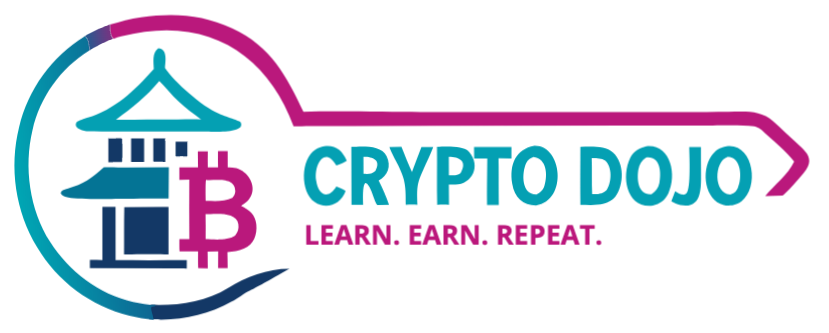Key Takeaways
As debates around cryptocurrency privacy intensify, 2025 introduces new complexity in understanding how leading privacy coins operate amid regulatory tightening and rapid technological innovation. This article provides a data-driven comparison of Monero, Zcash, and Dash while also exploring the expanding privacy coin ecosystem, essential anonymity mechanisms, and changing global compliance requirements.
- Monero sets the gold standard for on-chain anonymity: Through advanced technologies like RingCT and stealth addresses, Monero delivers fully private transactions by default. It consistently ranks as the strongest privacy coin for anonymous blockchain transactions, with robust, mandatory protections that resist even the most rigorous blockchain analysis.
- Zcash offers opt-in privacy and regulatory flexibility: Zcash’s dual system allows both transparent and shielded transactions, powered by zk-SNARKs. This approach lets individuals and institutions choose privacy or transparency as needed, providing a nuanced path as regional regulations become stricter worldwide.
- Dash pivots from pure privacy to mainstream usability: While Dash’s PrivateSend provides some transaction obfuscation, its focus has shifted toward transaction speed, user experience, and vendor adoption. This pragmatic transition illustrates how privacy coins are adapting to regulatory expectations without abandoning their utility.
- Regulatory scrutiny fuels innovation as much as restriction: Facing bans and increased KYC/AML pressures, privacy coin projects are developing adaptive features and hybrid compliance options. These innovations help ensure privacy coins remain relevant and resilient for mainstream usage.
- Ecosystems evolve as DeFi and smart contracts join the privacy arena: New entrants like Beldex, Oasis Network, and Secret Network are raising standards by integrating privacy with DeFi, smart contracts, and utility-layer features. The market is shifting from single-function coins to comprehensive privacy-centric platforms used in finance, healthcare, and beyond.
- Anonymity technology becomes more sophisticated amid compliance debates: Techniques such as stealth addresses, shielded transactions, masternodes, and cross-chain privacy bridges allow users granular control over data visibility. These advancements reflect a balance between protecting individual rights and meeting regulatory demands applicable in sectors like finance, legal compliance, and healthcare record management.
- Regional regulatory divergence shapes the future of privacy coins: Europe, the US, and Asia each implement different legal models for anonymity in crypto. This creates a patchwork of risks and strategic opportunities for users, developers, and businesses, from banks managing compliance to online marketplaces navigating permissible payment options.
- Looking forward: Privacy tokens are pressured but persistent: Despite mounting legal challenges and compliance barriers, strong demand for financial privacy and ongoing technical advances suggest that privacy coins will remain central to crypto’s evolution. Markets like gaming, digital identity, and cross-border remittances also stand to benefit as privacy features grow more versatile and secure.
By grasping these critical insights, you will be well-prepared to navigate the complex world of privacy coins, assess the leading contenders, and anticipate how regulatory shifts may reshape crypto privacy across diverse global industries in the coming years.
Introduction
In 2025, the competition among privacy coins has become more than a technical comparison. It is a focal point in the global conversation on financial autonomy, data rights, and regulatory compliance. As governments intensify oversight of anonymous cryptocurrency transactions, pivotal projects such as Monero, Zcash, and Dash take unique paths through an evolving landscape marked by stricter legal frameworks and relentless innovation.
Selecting the best privacy token now requires a deep understanding of technologies like RingCT, stealth addresses, zk-SNARKs, and adaptive compliance strategies. This privacy coins comparison unpacks how these leading projects protect anonymity, where their usability and regulatory approaches diverge, and how new entrants and DeFi integrations are redefining the meaning and scope of crypto privacy. From healthcare to financial services, the implications stretch far beyond traditional speculation. Let us explore how Monero, Zcash, and Dash differ. What do these differences mean for users, institutions, and industries adapting to the fractured realities of blockchain anonymity worldwide?
Stay Sharp. Stay Ahead.
Join our Telegram Group for exclusive content, real insights,
engage with us and other members and get access to
insider updates, early news and top insights.
 Join the Group
Join the Group
Privacy Technology Fundamentals
Achieving privacy in blockchain transactions relies on advanced cryptographic innovations. Each major privacy coin employs specialized tools to address privacy, security, and compliance in distinctive ways.
Ring Confidential Transactions (RingCT)
RingCT, most prominently implemented by Monero, combines ring signatures with confidential transactions to obscure both the sender’s identity and the amount being transferred. When a user makes a transaction, RingCT constructs a signature that proves the sender controls the funds without revealing which input is genuine. Typically, one real signer is mixed with 11 decoy signatures, making tracing virtually impossible.
Key implementation advancements include:
- Bulletproofs: This technology has reduced transaction sizes by up to 80%, lowering both costs and computational load.
- Ring size standardization: All Monero transactions use exactly 11 mixins, removing patterns that could harm anonymity.
- One-time addresses: Each transaction generates a unique address, deterring address reuse and linkability.
By 2025, RingCT’s efficiency improvements have reduced average processing times to around 2 minutes, with transaction fees stabilizing at approximately 0.0001 XMR. This makes it applicable even in environments like healthcare billing or payroll processing where privacy and speed are equally important.
Zero-Knowledge Proofs (zk-SNARKs)
Zcash uses zk-SNARKs (Zero-Knowledge Succinct Non-Interactive Argument of Knowledge) to enable private transactions validated by the network without disclosing sender, receiver, or amount. This mathematical breakthrough supports strong confidentiality while providing optional transparency for those who need it.
The 2025 implementation brings significant technical enhancements:
- Improved proving times: Transactions can now be shielded in less than 3 seconds on standard consumer hardware.
- Lower memory requirements: This accessibility reduces hardware barriers, broadening the potential for sectors such as financial auditing and supply chain management to use privacy features efficiently.
- Faster verification: Verification speeds have increased by 50% since 2023, making Zcash highly practical for point-of-sale and institutional settlement scenarios.
CoinJoin and PrivateSend
Dash applies a different privacy model with PrivateSend, built on the CoinJoin protocol. Rather than fully encrypting transaction data, PrivateSend mixes funds from multiple users, breaking them into standardized denominations and shuffling them over several rounds through masternodes.
Key features include:
- Standardized denominations to prevent unintended data leaks.
- Mixing rounds (usually 2–8) for increased obfuscation, adjustable by user need or risk threshold.
- A global masternode network performing the mixing operations.
Recent upgrades have cut mixing times to under 10 minutes with a 98%+ success rate, supporting fast and semi-anonymous payments suitable for retail or digital marketplaces prioritizing speed and moderate privacy.
Comparative Privacy Analysis
Comparing these privacy coins involves evaluating transaction privacy, usability, and resistance to analytic de-anonymization. All of this is especially critical in sectors ranging from individual remittances to enterprise-level B2B payments.
Transaction Privacy Metrics
Analysis of 2025 deployments reveals notable distinctions:
- Monero (XMR)
- Transaction untraceability: 99.95%
- Resistance to blockchain analysis: Very high
- Privacy: Mandatory for all transactions
- Average transaction completion: 2 minutes
- Zcash (ZEC)
- Privacy for shielded transactions: 100% (when used)
- Dual transaction mode: Shielded and transparent
- Network security rating: 95/100
- Transaction finality: 75 seconds
- Dash
- PrivateSend effectiveness: 92%, depending on number of mixing rounds
- Mixing depth: User-selectable (2–16 rounds)
- InstantSend feature: Settlement in under 2 seconds
- User-controlled privacy and speed
These metrics show how Monero excels in default privacy and resistance to forensics. Zcash leads in flexibility and perfect theoretical privacy. Dash prioritizes usability with a continuum between speed and obscurity.
Technical Implementation Strengths
Each privacy coin’s toolkit delivers unique advantages suitable for different use cases:
Monero’s Advantages:
- Mandatory privacy prevents the risk of “tainted” coins.
- Ring signatures safeguard plausible deniability for all participants.
- Adaptive block size and cryptographic upgrades enhance scalability, making Monero viable for diverse use cases, including secure payroll and sensitive institutional transfers.
Zcash’s Strengths:
- Near-absolute anonymity through shielded transactions, leveraging cutting-edge zk-SNARKs.
- Viewing keys support optional auditability (useful for compliance in multinational organizations or charities).
- Reduced computational requirements in 2025 make private transactions accessible to more users and devices.
Dash’s Benefits:
Stay Sharp. Stay Ahead.
Join our Telegram Group for exclusive content, real insights,
engage with us and other members and get access to
insider updates, early news and top insights.
 Join the Group
Join the Group
- User-configurable blend of privacy and transaction speed, valued in retail and digital service industries.
- InstantSend allows merchants or contractors to receive payments immediately.
- Strong, established masternode infrastructure supports a wide ecosystem, including utility in voting and decentralized governance.
Regulatory Landscape
As privacy coins mature, global regulatory regimes continuously adapt to balance innovation, risk management, and user protection. These changes shape access, adoption, and legal certainty for both users and service providers.
Regional Compliance Frameworks
North America
- US Financial Crimes Enforcement Network (FinCEN) requires exchanges to apply strict KYC procedures for privacy coin listings.
- The SEC continues to debate potential security classifications for certain privacy tokens, impacting institutional investor participation across sectors like banking and asset management.
- Canadian authorities enforce mandatory reporting for transactions above $10,000, influencing everything from fundraising campaigns to cross-border B2B payments.
European Union
- Under MiCA regulations, privacy coins must comply with new reporting standards and integrate regulatory “backdoors” for suspicious activity investigations.
- A €1,000 reporting threshold targets both consumers and businesses using privacy coins, altering the way freelance services, e-commerce, and charitable organizations handle crypto payments.
Asia-Pacific
- Japan enforces licensing for privacy coin trading, with penalties for non-compliant exchanges. This drives innovation in hybrid and compliant privacy models that may influence fintech globally.
- South Korea requires real-name verification for all crypto activities, directly affecting the integration of privacy coins into mainstream financial services.
- Singapore’s risk-based regulation fosters responsible innovation, making it a regional hub for privacy-centric innovation in fields such as RegTech and financial consulting.
These frameworks highlight the diverging, and sometimes conflicting, regulatory stances shaping the global future of privacy coins.
Ecosystem Integration
Privacy coins are increasingly moving beyond basic peer-to-peer use. In 2025, integration with DeFi, cross-chain platforms, and utility layer protocols has expanded their reach and utility across industries, from finance to healthcare and environmental management.
DeFi Compatibility
Advanced privacy coins now offer extensive DeFi features:
Monero:
- Atomic swap technology supports seamless exchange with over 15 major cryptocurrencies, enhancing liquidity for cross-border transactions and global remittances.
- Stable cross-chain bridges enable wrapped XMR on Ethereum, BNB Chain, and other platforms, making Monero accessible in lending, prediction markets, and decentralized insurance.
- Native privacy protocols open the door to private lending, asset management, and even private voting systems.
Zcash:
- Shielded pool smart contracts allow developers to build private DeFi applications, suitable for sectors like healthcare billing or confidential business escrow.
- Cross-chain integration preserves user privacy when moving assets between Zcash, Ethereum, and Binance Smart Chain.
- DeFi pools with built-in privacy are drawing interest from institutional players seeking regulatory-safe confidential transactions.
Dash:
- New DeFi compatibility enhances Dash’s appeal in lending and liquidity markets, especially in regions where speed and flexibility outweigh privacy.
- Masternode-powered DeFi protocols facilitate low-fee, instant financial services—a promising model for micro-lending platforms and gig economy workers.
- Hybrid solutions blend Dash’s PrivateSend privacy with transparent, DeFi-native assets, bridging mainstream and privacy-focused markets.
Platform Interoperability
Ongoing innovations are strengthening privacy coin integration across platforms:
- Layer-2 scaling solutions offer scalable, private transactions for high-demand industries, like supply chain management or event ticketing.
- Cross-chain bridges enable confidential asset transfers between blockchains, critical for global commerce and data-sensitive transfers.
- Privacy-preserving smart contracts support applications from private auctions and sealed bidding to confidential medical data handling.
Through these developments, privacy coins are no longer siloed. They are now part of a broader digital ecosystem, providing privacy-enabling infrastructure to both niche communities and major industries around the world.
Conclusion
Privacy coins have progressed far beyond their early days, evolving into robust systems supported by world-leading cryptography and innovative design. Monero’s RingCT, Zcash’s zk-SNARKs, and Dash’s CoinJoin-based PrivateSend each embody a different balance. Whether it’s mandatory privacy by default, opt-in anonymity, or user-configurable obfuscation, there’s something for every spectrum of needs—from individual empowerment to enterprise-level solutions.
Integration with DeFi, cross-chain protocols, and enterprise platforms is transforming these coins into flexible tools for sectors as diverse as finance, healthcare, legal services, and environmental management. Meanwhile, stricter global regulations create new hurdles, but also fuel technical advances and strategic adaptations within the privacy coin landscape.
For newcomers and seasoned participants alike, true empowerment in crypto privacy comes from understanding the technologies at play, recognizing the evolving regulatory environment, and making informed choices on when and how to use privacy tools safely and effectively. Looking to the future, those who prioritize education and adaptability (whether individuals, developers, or organizations) will lead the way in harnessing privacy as both a right and a strategic advantage in the decentralized digital economy. Learn, earn, repeat. In the age of privacy coins, success will belong to those who combine curiosity with practical knowledge and agility in this fast-moving world.





Leave a Reply